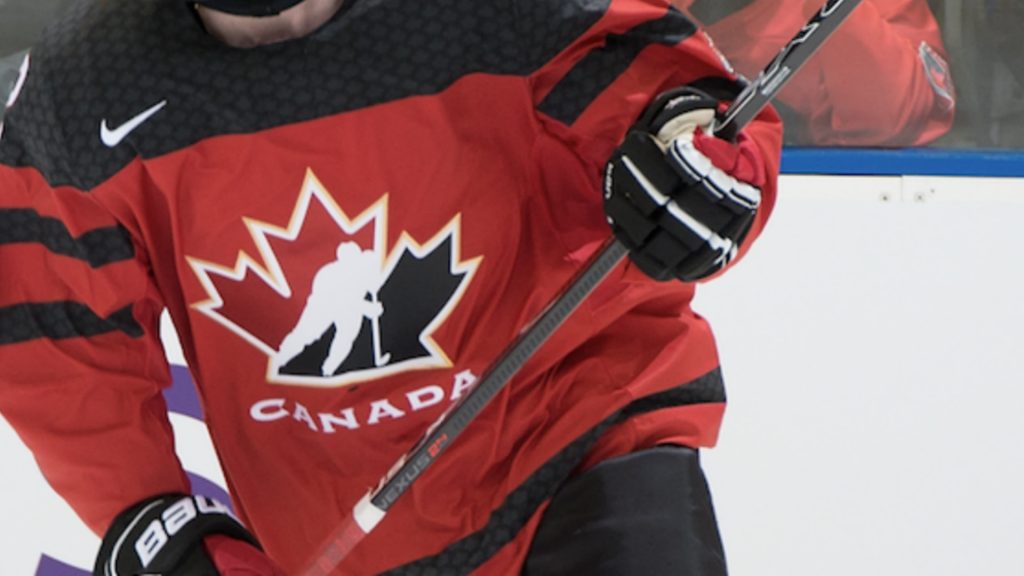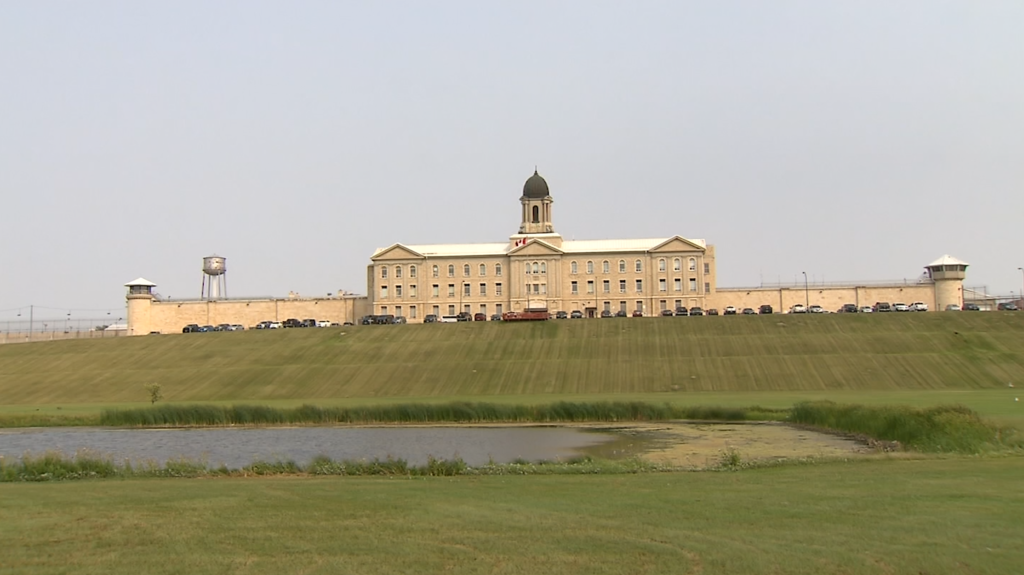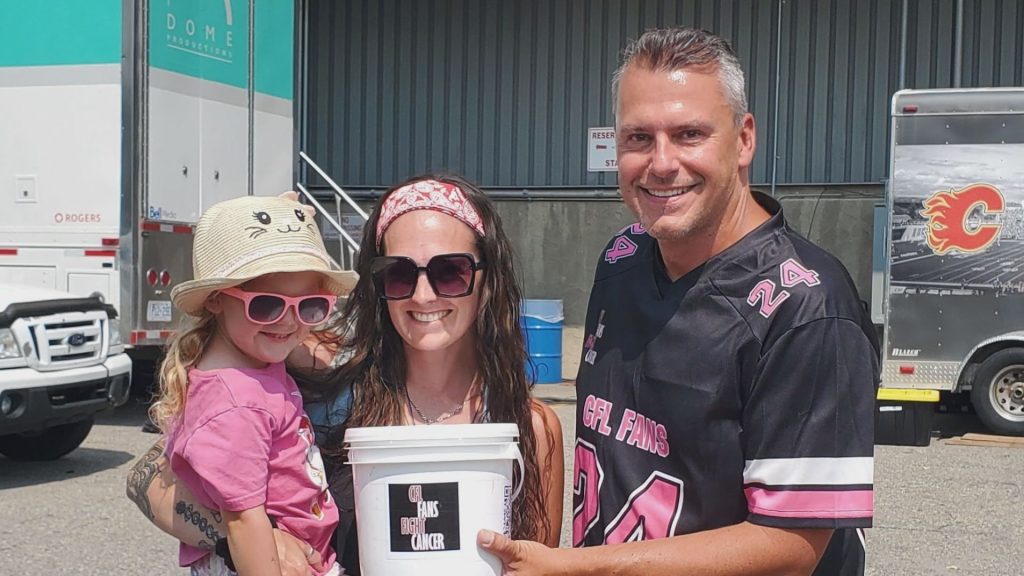Former Olympian, sexual abuse survivor, demands change amid Hockey Canada scandal

Posted July 22, 2022 9:42 am.
As Hockey Canada continues to deal with the fallout of damning revelations it allegedly used money from registration fees to settle sexual assault claims, it’s just the latest in series of scandals involving allegations of inappropriate behaviour at a high level.
Serious accusations have previously been made involving other organized sports groups, including the Vancouver Whitecaps, the Chicago Blackhawks, and women’s gymnastics teams on both sides of the border.
Now, a former Olympian is speaking out and demanding change.
Allison Forsyth used to be on Canada’s Alpine team. She was sexually assaulted by her coach and part of a class-action lawsuit against the organization. The mother-of-three from Nanaimo is exasperated and says this just can’t keep happening.
We asked her if she thinks Hockey Canada should be dismantled and she says the federal government could intervene if it wanted to.
“I believe they are going to be looked at. Their governance structure is going to be looked at,” Forsyth said when asked whether she believes Hockey Canada should be dismantled.
She feels the federal government could intervene if it wanted to.
“They absolutely need to step into what sport looks like in 2022 to keep athletes at all levels completely safe,” the former Olympian told CityNews.
“As a mother of two young boys who play hockey, I will tell anyone at Hockey Canada they need to understand it’s a massive undertaking. The grassroots level of hockey, in my professional opinion is still very unsafe for children, so I do not want any parent out there to get a false sense of security that nationally levelled funded organizations are being forced to do work at the grassroots, that mandate will come from Hockey Canada. They need to respect that whether their organization is torn apart or not, they’re going to need to have a massive division of people … I am not seeing enough protection for my own children at hockey rinks.”
This is my son. He loves hockey. His mom was sexually abused by her coach and works in #safesport to protect him. Parents- the fed gov’t can’t force @HockeyCanada to protect your child. They can only enforce protection at the National Level. Knowledge is power. Educate yourself. pic.twitter.com/AjmvdtRB8H
— Allison Forsyth, OLY (@AlliForsyth) July 19, 2022
The athlete-turned-advocate says despite what has surfaced, she believes there are people within the organization who want to see positive change. However, it isn’t clear when that may happen.
“I think one of our biggest challenges is who is actually holding each and every organization accountable to what the federal government is requiring them to do. Who is enforcing it? Who is auditing it? We can say, ‘Enter blank national sports organization, you must do the following things now,’ but if somebody is not accountable to checking in every three to four months and holding them to account, we’re no better off,” she explained.
In an effort to prevent any cover-ups, Forsyth notes it’s key a third-party is brought in to investigate any accusations, saying it’s “critical” organizations not handle complaints internally.
“Right now, there is nobody telling grassroots clubs that they have to use independent third-party complaint management. What that means is there’s nothing stopping, from any organization, from sweeping anything under the rug at the grassroots,” she said.
Related articles:
-
Hockey Canada must do more to ‘gain back trust’ after sex assault scandal, says PM
-
Hockey Canada had abuse claim reserve fund, court documents show
-
Hockey Canada reopening investigation into alleged 2018 sexual assault
Forsyth, who is now based in Oakville, Ont., says a big part of change is having open and frank dialogue about what’s happening.
“Not being afraid to have the conversations with the participants. Why is my son not educated on the rule of two? Why does my son, who’s 11, who I believe completely has the maturity to understand why he should not be alone with his coach in a dressing room — why do I as a mother have to educate him because I’m a safe sport abuse survivor? There is a laundry list of things to do around prevention but if anyone thinks that going online and just doing an online training module and clicking through is enough, it absolutely is not.”
Hockey Canada said on July 20 that it would no longer use its National Equity Fund to “settle sexual assault claims,” effective immediately.
The organization has been under fire since the spring after quietly settling a lawsuit with a woman over allegations she was assaulted in 2018 by eight players, including several from the world junior team. Hockey Canada did not complete an investigation, require players to answer questions, nor attempt to identify the players involved.
The national hockey organization released a carefully worded open letter July 14 with a number of promises, including a pledge to reopen an incomplete third-party investigation into the alleged assault.
Putting money toward prevention
Forsyth says the time has come for everyone to become proactive instead of reactive.
“We need to focus on what does change look like and change looks like taking slush fund money, taking my child’s registration money, and putting it towards prevention … and that is really what the focus has been in the last five years of myself doing this work, is the federal government and everybody involved up until this point has focused way too much on, ‘What are we going to do when something happens?’ Every time we put our focus there, someone else has already been abused. I challenge everybody to really put their funding into prevention. You should not be prioritizing buying more hockey sticks or getting more sponsors over spending your dollars on preventing abuse from happening in sport. It is the number one budget item every national sports organization should have at this point.”
Forsyth, who is a partner at ITP Sport, a group that consults on safe sports programs, says training and education to prevent abuse is baseline.
She explains that involves updated policies and procedures, adding “you need to be able to stand behind safe sport” and be able to “talk about it at every meeting.”
“You need to create programming that is front and centre on your web page that any parent can go to and see exactly what you’re doing for your child to be protected.”
She feels Hockey Canada should take the money it makes from registration fees and put it toward prevention.
“They have opportunity, even at the most basic level,” explained Forsyth.
“Here’s an example, when you fill out a waiver, it is common and should always be, that you have to scroll through the entire waiver before you click accept. That’s not even built into their system. How cool would it be when I go to register my child and I pay my blank hundreds of dollars and right there it pops up, ‘$150 of your registration fee will be going to our safe sport programming.’ It gives me goosebumps to think of that. That is a click away where I, as a parent, would pay $100 more a year, no problem, if it meant I didn’t have to stand at the rink and make sure my kid is safe every day. I don’t think any parent out there that they wouldn’t pay to be able to help keep their kids safe. I think Hockey Canada and any organization needs to look at their revenue streams and ask themselves, ‘How much money do we need to make from these registration fees to operate our business because we are now going to go back and take a percentage of those fees and directly put it in our safe sport prevention programming. I think parents deserve, I think the kids deserve it and I think they have to be overt and honest about where those fees are going.”
Forsyth wants people to keep in mind abuse in sport isn’t just sexual — it can be psychological in nature, or take the form of bullying, hazing, discrimination, and neglect.
“The time has come for organizations to say, ‘We have made mistakes in the past. We are sorry. Please forgive us and now here is exactly what how we’re going to fix and change so we can step into a new era of sport, free of maltreatment and abuse,'” she suggested.
“If we don’t have strong sport administrators in sport, we don’t have sport.”
Meanwhile, she hopes people don’t pull their children out of organized teams because of the allegations that have come to light.
“It’s terrifying to me that a narrative could be out there right now that a parent says, ‘I’m not going to register my child in hockey.’ I grew up in sport and I had a horrific experience in sport, and I would still change nothing because growing up as a young athlete and the lessons you learn and the teammates you build and the friendships you get, in my opinion, there’s nothing like that sense of community. Absolutely, still register your child in their chosen sport and at the very least, walk into the office of that organization and say, ‘I would like to see your safe sport policies, your travel policies, I’d like to know if you follow the rule of two, and I would like to know how you are keeping my child safe, protected and emotionally well when I’m not here.'”
Another crucial step in bringing about change, according to Forsyth, is no longer being afraid or hesitating to speak up.
“The days are gone when we can just say, ‘It’s not my business. I think I saw something that made me feel a little weird, but I don’t want to ruin someone’s career — no.’ And there is power in parents because we are paying for our children to be in sport. We need to push for the changes we deserve, while the national sports organizations are being pushed by the federal government. We have an opportunity as parents of young athletes to push for what we know is needed.”
Hockey Canada, its lawyers, and other junior leagues are set to testify at a pair of House of Commons Committee meetings next week.
The organization’s multi-million-dollar fund was first brought to light by The Globe and Mail, which reported that the reserve had exceeded $15 million in recent years.
Prime Minister Justin Trudeau has said the government froze funding for the organization after the allegations surfaced in May. Many sponsors have also pulled their funding.








